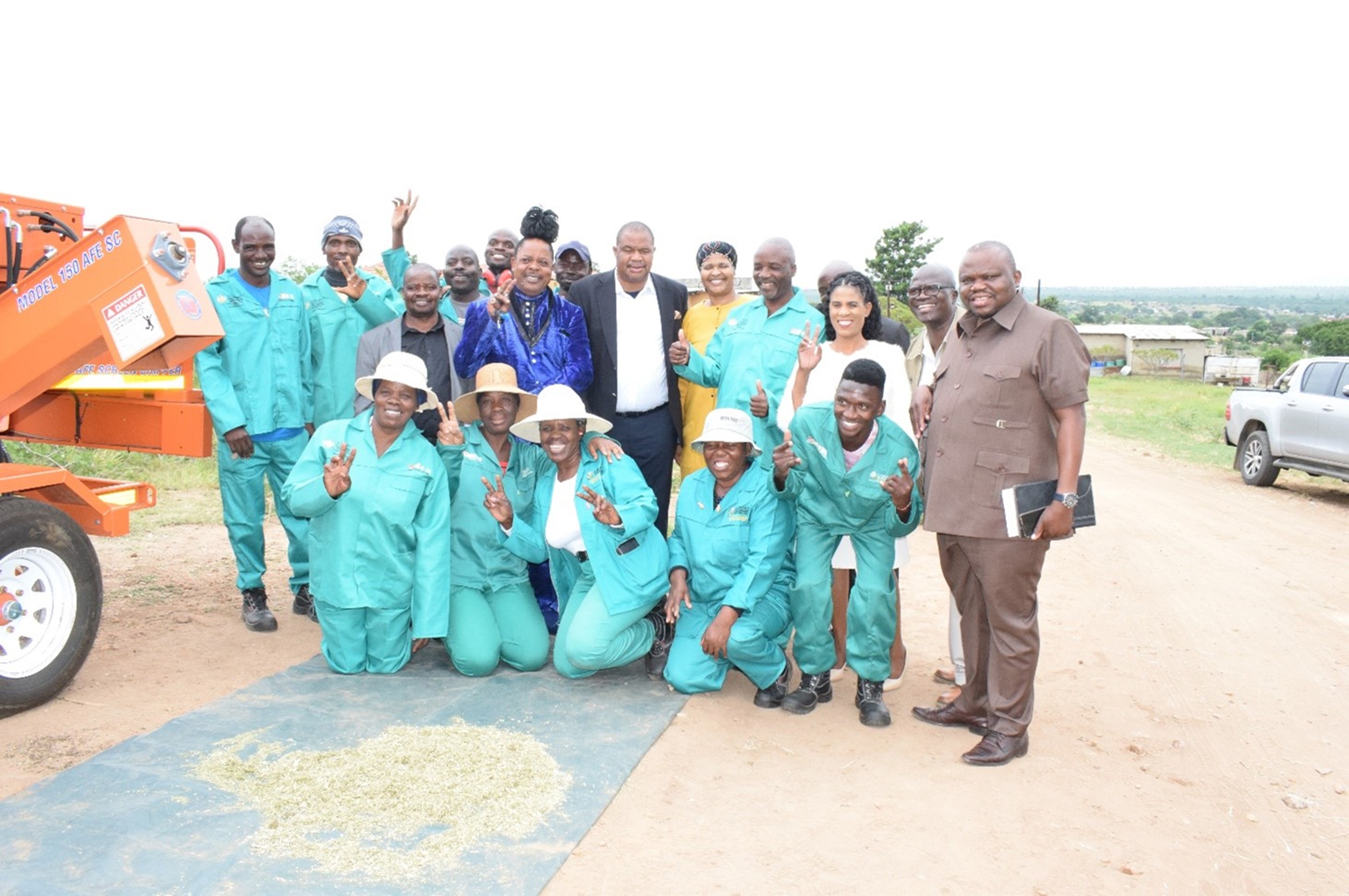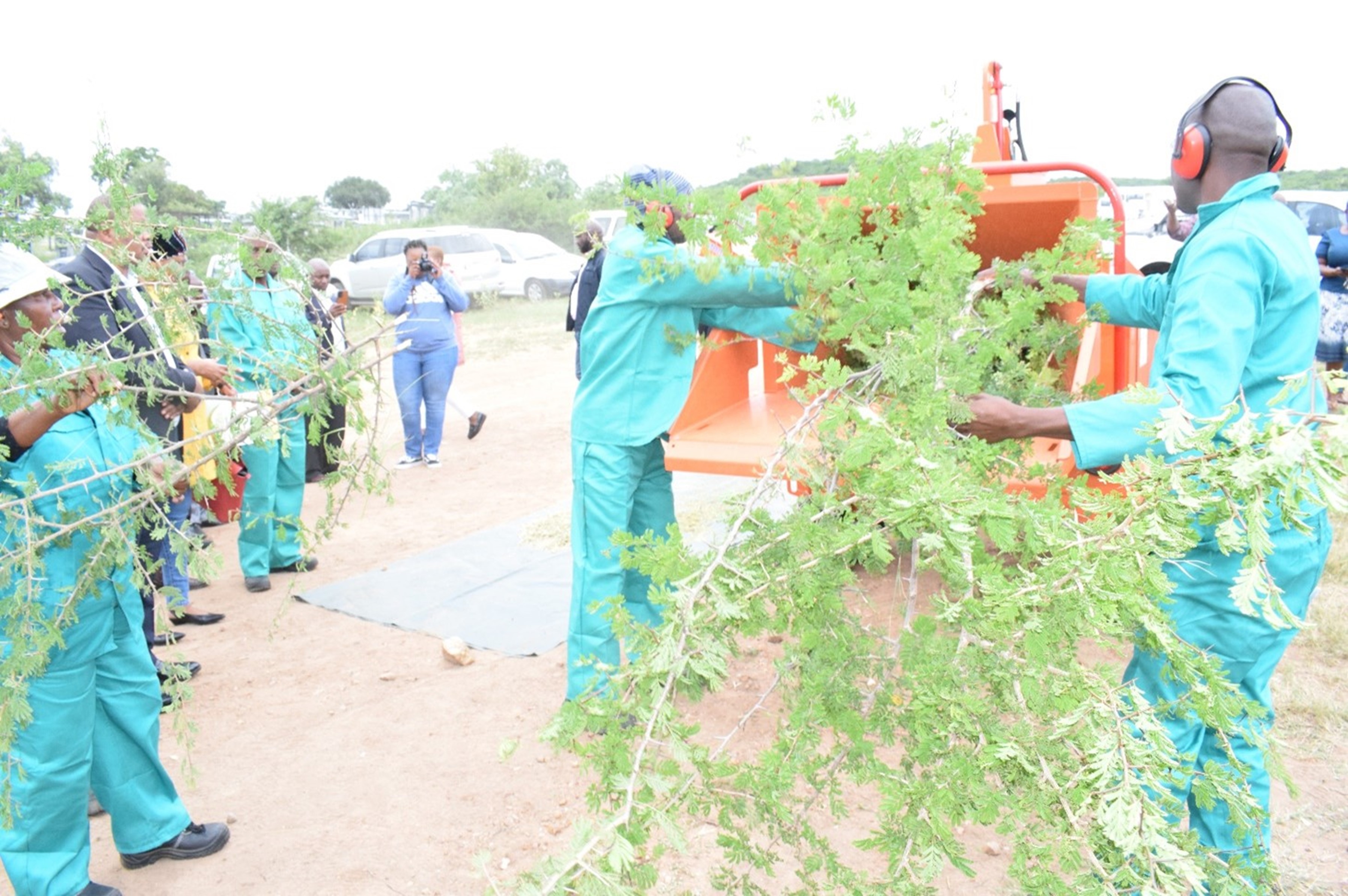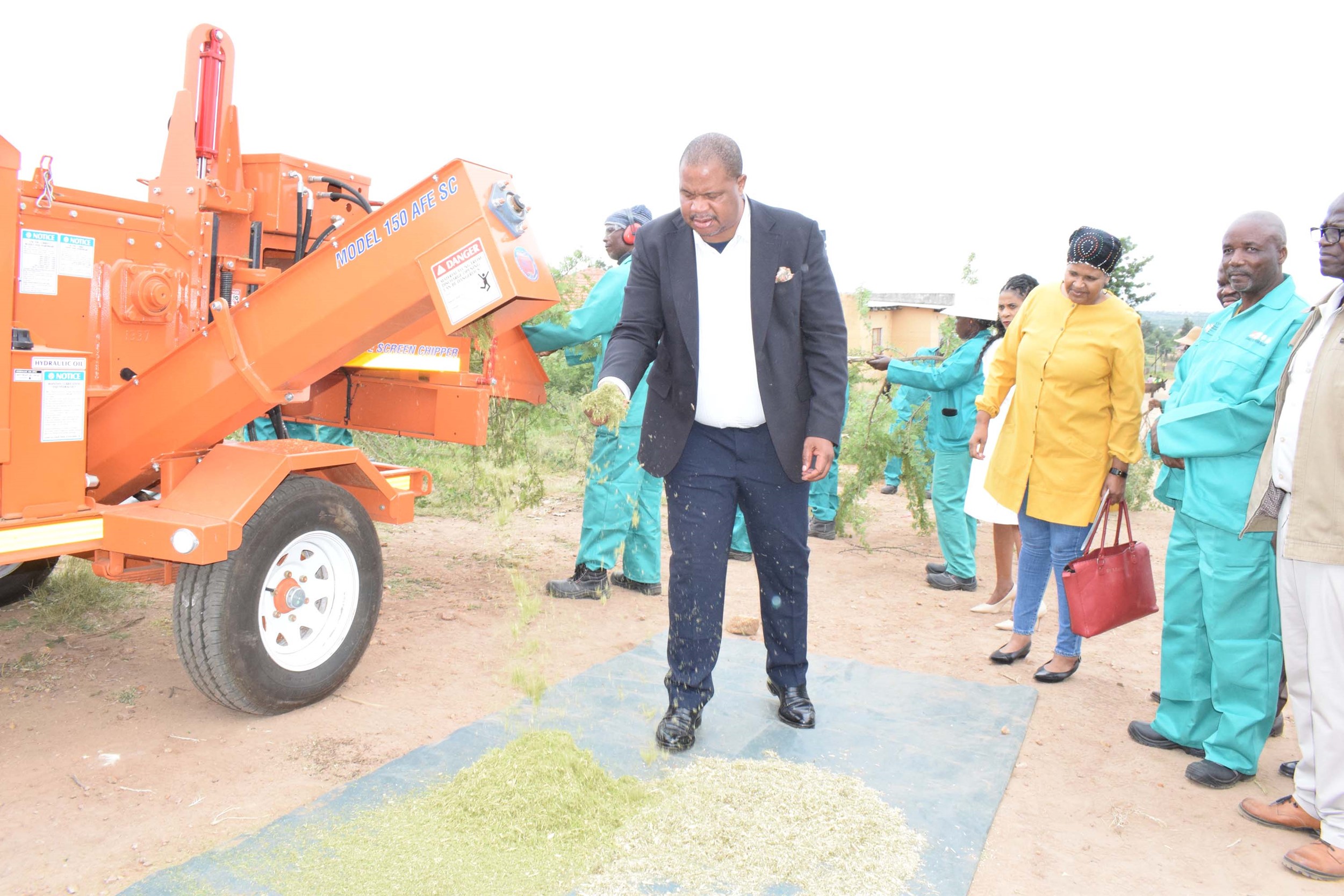By Zwi Maphiri
This year Land Care Day was celebrated at Mamaila village in Greater Letaba Municipality under the theme, “Forests and Health”. The Limpopo Department of Agriculture and Rural Development (LDARD’s focus was on the Badisa Re Timeletswe, which is a Non-Profit Organisation (NPO) based at Ha-Mamaila village.

The project specializes in animal production with a total of about 4000 cattle-owned by approximately 350 farmers (beneficiaries). The project was established in the year 2017 with the aim of restoring degraded veld used for primary livestock production and to eradicate some of the communities’ social ills such as unemployment, inequality, and crime (particularly theft of livestock). This project was funded by R5 million by Departmental Land Care Funding for a period of 5 years since 2017.
The main activities were clearing of problem plants such as Dichrostachys cinerea (Sickle bush) and Lantana camara (Lantana) and fencing of grazing camps for veld restoration. Project beneficiaries were trained on Chainsaw operation and application of herbicides. Certificates were issued for the courses. Some of the participants are now self-employed utilizing the skills and experience they have obtained from the project.

Previously the project beneficiaries used to clear sickle bush and the remaining biomass was burnt. There was a need to reduce greenhouse gas emission. LDARD took the project beneficiaries on an exposure visit to a farm near Thabazimbi, Northwest Province. It was discovered that farmers in that area were running a profitable livestock farming business using sickle bush as fodder. Upon arrival from Northwest, the project beneficiaries were given small samples of feed to test with their livestock. Several meetings were held with farmers as the project beneficiaries and other stakeholders. Most beneficiaries attested that their animals seemed to enjoy feeding on sickle bushes. At that stage the nutritional value of sickle was undetermined.

A team of Extension and Advisory Officers from LDARD collected samples from the plant and sent them to Agricultural Research Council (ARC) for laboratory analysis to determine the nutritional value. Local farmers contributed to the funding of laboratory tests. The laboratory test results showed that Sickle bush is rich in protein and can be used as animal feed.
There was also a commitment from Greater Letaba Municipality to procure the Screen Chipper Machine for livestock farmers of the whole Greater Letaba Municipality but due to Covid-19 the process was halted. As an exit strategy, the project beneficiaries decided to request financial support from the Landcare programme in the form of a diesel operated Screen chipper machine. This machine would then be used to create fodder from the cleared Sickle bush biomass and there is a possibility of creating full time job opportunities.
Fodder is dried under the shade, packaged into 50kg bags, and sold. The prices range from R50.00/bag to residents of Mamaila and R70 for farmers from neighbouring village. Since the purchase of the chipper machine in July 2022, the project has continued eradicating problem plants, creating fodder for their livestock, and generating funds for purchasing of daily running of the machine by packaging and selling of larger portions of the cut Sickle bush as fuel wood. This then ensures sustainability of the project.
The MEC for Agriculture and Rural Development Thabo Mokone also in his remarks encouraged the beneficiaries to get more land to plant more Sickle bush. “In some of the places where you are clearing the Sickle bush, do not completely eradicate the plant as it is supposed to grow and be used again”, said the MEC.


